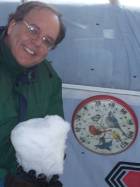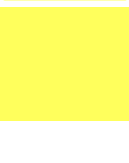





 |
||||||||||||
 |
 |
 |
 |
 |
||||||||
|
AB. Forum for comments
I operate under the principle that all people are fallible, but all will strive for honesty when properly constrained by checks and balances. This same principle informed our Founding Fathers when they wrote the United States Constitution. Government constrains ordinary people to do good. We need online democracy. To succeed, we need to inhibit boiler rooms full of salaried trolls from flaming innocent people. We also need to inhibit trolls from flaming a comment forum's administrators. Finally we need to discern an excellent comment from a so-so comment and then we need to point readers toward the important comments. My goal is to allow a group to write and to amend a series of minutes that are, in the end, approved by almost everyone. To accomplish this, I have an algorithm to determine who has built up good (or at least fair) credibility online. AB1. Earning street cred online Street cred online may be determined primarily by whether each of their writings are useful to the group, and especially by whether these messages don't flame other people. To encourage participation as opposed to lurking, some of each participant's street cred comes from actively voting for individual messages (if all messages get exactly the same vote that's not really voting) and from actively trying to write something lately. Participants with street cred see their messages posted near the top of the list for starters. Members can read a collection of posts on a topic either with a heavy weighting for top posts or for a heavy weighting for newest posts. I'm going to assume that voting for each message is done on a scale of 0 to 9. Readers would only have to type in 1 number to register their vote. Yes, readers can go back and change their votes, but generally a one character vote or a click on button 0 to button 9 moves people on to the next message. AB2. If you don't have any street cred, why should we trust your avatar's messages? New people and bullies (we won’t know the difference between newbies and bullies for awhile, because any bully can abandon her/his/their old avatar and start a new avatar) can always vote for posts and can always post in a discussion. However, their new posts start out on the lists rated by their street cred. The very first message by a newbie with a starter street cred rating of 2 will start off with five default ratings of "2", "2", "2", "2" and "2", for an average rating of 10/5=2. If one other reader gives this first message a good rating of "8", the average rating of 2, 2, 2, 2, 2 and 8 is now up to 18/6=3. Trolls who jump onto the board as newbies will have their messages, with a rating of 2, often near the bottom of the thread where people don't look. In addition, newbies may not be allowed to see any messages rated below 4. This means that a flamer can make up a new avatar and flame away, but half of her/his/their potential audience will never see the cheap flame at all. I'm of a mind to always let any poster see her/his/their own messages, but that won't tell the flamer whether anybody else sees their flames. In addition, if any particular flame gets a rating of near-zero, it drops the flamer's street cred notably below 2. The board is heavily weighted against aggregate votes of near-zero. Each rank newbie is assumed to have posted five messages, each with a newbie starter rating of 2. If the newbie's first message is eventually rated 5, the newbie's average message rating is up to 15/6=2.5 and future messages will start at the 2.5 level. We should throw a few tenths of a point of street cred rating for users who currently vote on messages, real votes, not all nines or all zeroes all the time, and also for people who actually try posting. Every avatar's votes are normalized so that the average vote is 5 and the votes all have a standard deviation. If you give all 9s all the time then you're really giving all 5s. If all you give are nines and zeroes then they are scaled down to perhaps 7.5s and 2.5s. The forum’s rules are that all messages are shown, but higher-rated messages will tend to be shown first. People who don’t have much time will then be able to read the good stuff first and the bad stuff rarely. A few finicky readers will read everything. AB3. If you don't have any real street cred, why should we trust your avatar's votes? If a troll should manufacture 1000 avatars and always vote a certain message down, the algorithm has certain backstops against this treatment. The aggregate newbie and troll vote (2 and below) will be counted all together and then translated to a maximum of 5% of the vote. Going up the street cred ladder, aggregate low street cred votes are always limited to a certain maximum percentage of the total voting power. We always want to see trustworthy voting processes. Vote stuffing efforts will often take on certain patterns. If we detect 50 brand new avatars all voting exactly the same way, perhaps we can identify one or more painfully well-established avatars that also voted exactly the same way. Vote packing is punishable by being busted down to roughly a newbie's street cred. Don't do it. AB4. Community-run online decisionmaking. I suspect that unexpected things will happen as approaching-consensus boards proliferate on the web. My hope is that all businesses will learn the hard way to either be good corporate citizens or else they won’t make much profit, because every third-party rating agency knows what they do, citizens check before they buy, and good businesses check before they buy from bad actors. I also hope that elected politicians will face exactly the same constraints. Eventually, I want to see reformed, corruption-resistant democratic governments in every country. Modern Friends are highly sensitive to the nuances of wise decision-making, and as such, they could take the lead in improving online decision-making. Friends sometimes write less-than-perfect minutes and sometimes get into squabbles, but we know when we’re disappointed with the results. Faith and Practice books are generally wise and well-written documents. My goal is to progressively improve online decision-making. –We must allow open participation from strangers so that we grow larger. However, we must deter malicious online bullies AB5. Organize hard-won decisions and information The forum's result should be well-written working documents. |
||
KLINKMAN SOLAR DESIGN (KSD)
Paul Klinkman & Liberty Goodwin, Owners Invention, Product Development, Training & Consulting P.O. Box 40572, Providence, RI 02940 Tel. 401-351-9193. E-Mail: info@KlinkmanSolar.com (Committed to working with small local businesses to manufacture, distribute & install our innovative products!) |
||